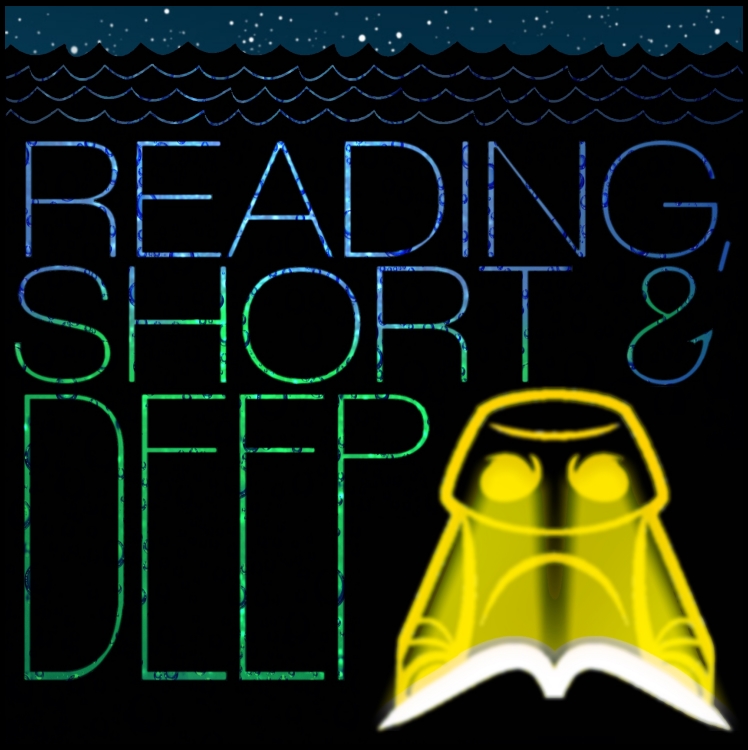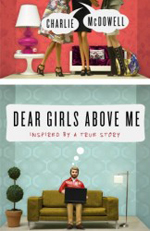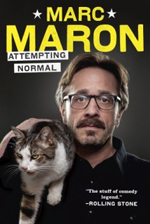The SFFaudio Podcast #794 – Jesse and Scott Danielson talk about Travels by Michael Crichton
Talked about on today’s show:
non-fiction book, autobiography, memoir, surprised by it, expecting just being about places he’d travel, astral travel, such a spiritual guru guy, spiritualism, mysticism, astral planes, past lives, auras, meditation, hanging out with Michael Crichton, Jurassic Park, the movie, Timeline, later ones, The Andromeda Strain, around my house, Coma by Robin Cook, Drug Of Choice, eerily close in plot to Coma, very much a Michael Crichton movie, an interesting path to that, life as a medical student, this is not quite what I thought it would be, life as a medical student, advisor taled him into staying, making a living by writing, John Lange books, Hard Case Crime, late 1960s early 1970s, amazing an excellent, a garbage book, trying to do something, Binary, crime, political theory idea, a government agent, modelling something that’s happening, murder the republican candidate for president, similar impressions and intelligence, mirrors of each other, an explosive, a well executed short crime novel, set in Egypt, having climbed the Great Pyramid, when he was young, taking him all over the world, books set in France, Spain’s riviera, Mexico and Europe, The Venom Business, nasty cruel rich people, genres that work like that, dynasties, nasty and horrible, his dad was a “journalist”, wealthy enough, might have been a CIA guy, his brain is amazing, broken by his dad, psychological and spiritual journeys, ghost is haunting him, the demon he takes with him wherever he goes, an extraordinary thinker and writer, an interesting man, a great writer, a great film director, a novelist who’s also a film director, William Shatner as a director, Star Trek V, not the greatest entry in the franchise, not demonically driven to learn, expresses interest in learning, in medical school, how the other students get and how the other doctors get, surgery on a guy, a series of procedures, not thinking about other people and their experience, becoming masters of that technical thing, a fact about viruses or chemistry, becomes obsessive for him, not shelved in science fiction, almost a Philip K. Dick novel, would limit the sales, what makes him different, the feel different, a science fiction novel not written by a science fiction author, not Margaret Atwooding, disconnected except where he’s not, the person in history he’s most like is Arthur Conan Doyle, kids with paper fairies cut out of magazines and a camera, in a way that made him a fool, comes to believe in at least a lot of it, a speech he was going to give to a skeptic’s organization, university degrees, things that blind people, this passion for putting himself in positions where he’s going to be learning something (about himself), it results in sparky writing, the artifacts of his books, decades after he’s dead, intellectual curiosity is still with us, not writing for a living, compelled to write, he leveraged that into doing other things that he wanted, Larry Niven, California boy, rich, all the film directors of the 20th century, some of his movies are excellent films, The Great Train Robbery (1978), one of the best movies of the 1970s, the opposite of the Robert Jordan series, The Lost World, took the text of the film for the text of the sequel, abandons the original novel, Arthur C. Clarke did for 2010, interest in the paranormal, a really interesting phenomena, raining fish, seems to be pretty strong, why would anybody want this, a pretty excellent attitude, sit in an ashram and talk to cacti, came up with stories that helped him in his own life, worked through his childhood trauma, very healthy, wise, he didn’t waste his time smoking dope and drinking himself to death, human flourishing, this is great, Scott is a Catholic guy, where this conversation would end up, brushes up on things Scott does beleive, scientists being blind, Fauci is science, I am science, when they attack me they attack science, this book from 1988, Jesse Willis paints you all in the same spiritual box, Utah, Mormon religion is the biggest religion around, a lot of the arguments against Mormonism, like an atheist would use against Scott, a closed door, anything I can’t measure doesn’t even exist, he was gentle, the new athiests, Bill Maher, Richard Dawkins, the mediation guy who doesn’t care if Biden’s son is torturing children in his basement (Sam Harris), using religion as a weapon of control, that isn’t Michael Crichton’s hobby horse, an intellectual curiosity, auras, a lot of talk about auras, with regard to art or sex, you can’t make the creativity come without being in the right mood for it, use lube, good at poking holes in the conventional experience, right not to become a doctor, evil practices he was witnessing, evil practices in tourism, a sex tour in Thailand, child sex slaves, let’s get out of here you guys, smokes a cigarette, doesn’t convey any judgement, his school years, the practices that the doctors were doing, morally questionable, very morally questionable, judging people, these people need to be condemned, bringing that topic up in this book today, canceled again, canceled before, his “climate change book”, an honest investigator, he goes down a path Jesse doesn’t like, rich evil self-destructive people, drawing on his own life-experience, what do you do?, work through it in a novel?, State Of Fear, writing stuff for money, an homage to his hero: Conan Doyle, what he’s riffing on in the first one, playing in his own sandbox, Lawrence Block, Donald Westlake, Robert Jordan, Elantris guy: Brandon Sanderson, did their toe into it, consistently different, Congo, you can see where that came from by reading this book, time with the mountain gorillas, forgteable and bad?, he didn’t direct that movie, Sphere, Rising Sun, Disclosure, Airframe, A Case Of Need, Five Patients: The Hospital Explained, Electronic Life: A Layman’s Guide To Computers, The Terminal Man, seizures that cause killing sprees, a viscous learning cycle, 1972, very interested in computers, they use an IBM computer to plan all the scenarios that could go wrong, thing of interest, coming at it from a perspective outside of science fiction, Deep Thought, another guy who liked to travel, Douglas Adams, not as productive, produced a ton of novels, The Venom Business, these heroes, intellectual heroes, authorial heroes, Eaters Of The Dead, Ibn Fadlan And The Land Of Darkness, Arab Travellers In The Far North, a retelling of Beowulf, let’s do it, a physical copy, fiddled with the metatext, he’s just the translator, playing with the medium, the images from the serialization of The Lost World, for challenger himself, they lose the camera, photographs, sketches and paintings, plays into the end of the book, pterodactyl, participating in that in the book, fiddles with the copyright page, an old tired writer, a young invigorated guy having fun, a new posthumous publication with James Patterson, a dead man writing a book with a living man who has a ghost writer, Dragon Teeth, fossil hunting in the wild west, 2008, a pirate novel, Pirate Latitudes, Micro with Richard Preston, The Andromeda Revolution, Daniel H. Wilson, Atul Gawande’s Being Mortal, chemotherapy is poison, take the family to Disneyland one last time, what do you want your last few years to be, most people, learning the corpse, learning to memorize where all the people, cars, a house, a vacation home, this seems wrong, one of the biggest cultural influences: ER, very different from other TV shows, turned into a stat because of that show, the storytelling on that, here’s a case, we try all sorts of things where nothing works and the person dies, spawned a ton of shows, like House, another Conan Doyle influenced show, interest and approach, very different and special compared to other writers, gutter books, never came up, not even close, he doesn’t care, pursuing his own passion, a lot of diving and mountain climbing, he goes places you wouldn’t expect, diving with my sister, I’m dying I’m dying, an urge to have sex and unfortunately he’s on vacation with his sister, traumatic incident, you must reproduce, a detachment in the way he tells things, he himself is that way, his relationships, Jamaica, girlfriend or wife, a similar experience, Tucson, Belize, an object called a relationship, he seemed to know at the time, the argument he got into, severed that connection, unrecoverable, talking about women in Hollywood, the hunters, sexual hunters, this is what they want in a relationship, men being romantic, he might be right, the friend who says that to him, that’s really interesting, Arthurian romances, men and women are exactly identical, some do, a lot of weird people but generally people are pretty much the same, adventure vs. romance, Disclosure (1994), the kind of movie I would have watched, business equals, when he gets an idea between his teeth, seeing if he’s got something there, this isn’t an autobiography, doesn’t cover his childhood at all, his dad was rough on him, not a lot of details, that end speech, simplistic, John is a six foot tall man, taller than 5’11, we’re talking about today, except for that time when his football team lost the game, the tailor, the magic of fiction, this further conclusion, reading a Lord Dunsany novel, we can always go back to the text, this is in there, that sentence exists, that is more true than Jesse’s own hair, things change, but not in fiction, an extraordinary thing to think about, we can find truth easier in fiction, it’s a canid, it can breed with other canids, not really half, the more fine grained you drill down onto it, some good wisdom and insights that a lot of people are pissed off about, team science, team spiritualism, he will not submit to any one thing, these very clear scenes recalling dialogue for incidents in his life, him as the dumb guy, memorable to him because he was learning something there, a new spiritual high, six months, a house by the beach, snakes, rattlesnakes in his yard, switching attitudes, different perspectives, a journey of perception and experience, after climbing Kilimanjaro, and yet he does, he does it with lovers and family, very happy that this book got published, a nice record of a man, he has brothers and sisters, they’re not the focus, the family lineage, a little bit about Sean Connery, a little bit about specific movies and books, filming in Ireland, I’m done riding these trains, you have everything he needs, didn’t care about certain things, going way faster and him being right, cool stories, he didn’t dwell there, not showing off his celebrity friends, dating a famous film actress, Linda, aloof in his own life, looking at it from a higher perspective, making a fool of himself often, I feel stupid talking to this cactus, mad at the cactus, fringe experiences, Jesse doesn’t disbelieve him, some of these people are wise teachers, there’s no good answers, becomes a medium himself?!, not the guy Jesse thought he was, Scott’s whole reading life, known something about him, could have been written by anybody, he saw a psychic, a TV movie called Binary, he made money from it, Coma is what he showed the Anglo-Irish crew, Robert Wise, precise control, how everything is connected, Thailand, a travel website, Westworld (1973) he wrote and directed, Looker, Runaway (1984) is kind of a crappy movie, Gene Simmons is the bad guy, directs Burt Reynolds, Twister (1996), directed some reshoots for The 13th Warrior (1989), more books like this, enjoy a good memoir, the HBO Westworld, a tiny wikipedia entry for the book, VincentVacations.com, travel agencies come up quite a bit in his early books, in Binary, San Diego, spent a lot of time at travel agencies, a reprint from a website, a blog from 2005ish, how he came to write, a column related to travel published in The New York Times, a modern age explorer, began as a series of travel pieces, it wasn’t supposed to turn into anything, almost evasive, some medical stories, pretty ancient history, a kind of keeping a secret by never writing about it, the following is by Janet Berliner, 2010, 1993, where his career went after this interview, write something specifically for children, Treasure Island, So Dear To My Heart (1948), it doesn’t have any adventure, a contrast between, that mushy stuff, maybe that’s Pirate Latitudes, solutions to our problems to society, addressing questions, something that is compelling, another Travels, Travels is the favorite of my books, stainless steel high tech person lecturing on the subject of robots, so much early attention for books, popular perceptions, bad transcription, two historical novels in the mid-1970s, a great sense of relief, its implied by a lot of this material, the narrator is now behaving differently, glib answers, worth thinking about and putting down, poking around in the backs of closets, Sphere was published, 200 pages of a manuscript, revise and correct what I did from memory, a few little acronyms, odd feeling, it went along for months, the first draft took 5 months, a common experience, not entirely processed, a need to objectify, creating a persona, eliminating extraneous and complicating details, a US president biography, Decision Points by George W. Bush, the official biography, many years, it is always that way, my experience of the past now, oh my my what an interesting person must have written this book, a quarter of a century, how to discuss the “fringe phenomena”, all the words are corrupted, the press tour, the most discussed aspect, critical of that part of the book, in just those words, Electronic Life, Marvin Minsky, Society Of Mind, meditation is a kind of delusion, a physiological state, so tremendously interested, music, sports, no one can throw a little piece of letter 100 yards, it happens every Sunday, think of Travels as a bet, this book is going to look prescient, a serious bet, exotic places, going for research, always drawing from your life, a domestic argument, that’s good! remember that you can use that, James Thurber’s wife, Thurber, stop writing!, off the clock, in the end it wasn’t, the colours of policeman’s uniforms, becoming too detailed, she won’t even take photographs, an abstraction, a bold decision, also practical, very helpful to go some place some place, have this fresh experience, more informed experience, all the things he would bring onto the airplane, facecream, typewriters, I haven’t been to Israel, Egypt, the former Soviet Union, Asia, I’m so tall, left to my own devices, Italy and Greece, Disclosure, Congo, Jurassic Park, the most successful movie in history, it is going to happen, the Jaws series, protecting your own work becomes important, probably gotten a lot worse, you don’t really decide until you have to, there will come a point, I’m not there yet, my income has declined somewhat, 20% less, not as well paid, when America was richer, an intellectual prospecting that happens, when you finally get a nugget, sometimes talking about it dissipates it, Rising Sun and Disclosure were set in high-tech, novels of social commentary, the possibilities are limitless, after his success, those paperbacks in the late 60s were disposable, even so, the economy is not as good as it was, we’re feeling that now, for sure, did he win his bet, the mystical aspects of it, the medical stuff, the more you investigate what’s going on the more you realize there are a bunch of scams going on, on team scam means you get to keep your job or you’re ostracized, lose your twitter account, coronations, institutions, the FDA, drug companies, make cash, countries can reap rewards, the pressure to makes drugs mandatory, makes 100 billionaires, lie dispute and legalize, pretty amazing, he would be shitcanned again, maybe he would have been big enough to weather that, comedians that a re big enough, musicians that are big enough, can’t cancel them permanently, Michael Caine’s biographies are really great, narrated by him, The Moon Is A Balloon by David Niven, Blue Highways by William Least Heat-Moon, travel writing, memoir, they go together, The Old Patagonia Express by Paul Theroux, On Writing by Stephen King, made it even richer, out walking with his dog trying to finish The Stand, running home, a student coming, The Mosquito Coast (1986).
Posted by Jesse Willis


 Boy: Tales of Childhood
Boy: Tales of Childhood Dear Girls Above Me
Dear Girls Above Me Attempting Normal
Attempting Normal Going Solo
Going Solo